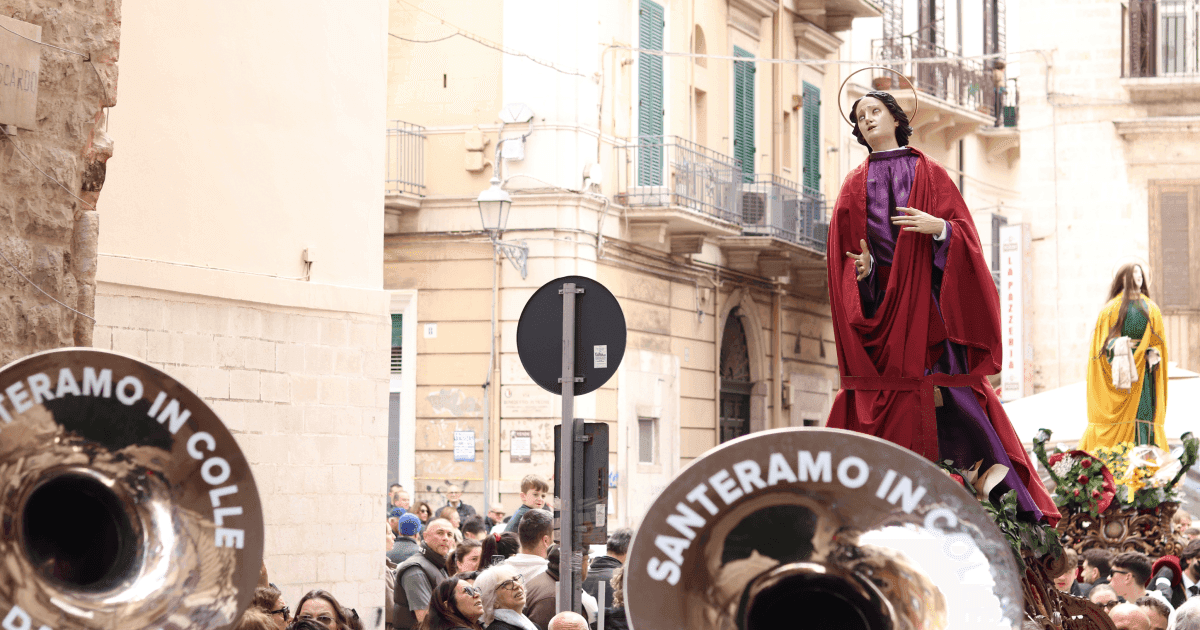Planning your time off in Italy in 2026? It’s a smart move. With a clear grasp of the Italian national holidays and attendant closures, you’ll be in a much stronger position both for daily life and work scheduling as an expat. In this article we’ll walk through the essential Italian public holidays in 2026, show how to turn them into long weekends, explain why the calendar of Italian holidays matters, and give you practical tips for living and working in Italy. We will try to answer the most frequent questions about Italian holidays, public holidays in Italy, Italian bank holidays, and more.
What you need to know about 2026 in Italy
Why the holiday calendar matters
Turning dates into experience
Travel and business practicalities
Why understanding the Italian public holidays makes a difference
FAQ — National holidays in Italy
What you need to know about 2026 in Italy
Italy has renewed momentum in 2026: the year brings the usual statutory holidays plus a newly restored celebration, meaning more opportunities for breaks — but also more things to plan around. The fullest Italian holiday list includes the national days that trigger country-wide closures. According to sources, key dates for holidays in Italy in 2026 are as follows:
| Date | Holiday |
|---|---|
| January 1st | New Year’s Day |
| January 6th | Epiphany |
| April 5th | Easter Sunday |
| April 6th | Easter Monday |
| April 25th | Liberation Day |
| May 1st | International Workers’ Day (May Day) |
| June 2nd | Republic Day |
| August 15th | Assumption (Ferragosto) |
| October 4th | Feast of St. Francis of Assisi (newly reinstated national holiday) |
| November 1st | All Saints’ Day |
| December 8th | Immaculate Conception |
| December 25th | Christmas Day |
| December 26th | St. Stephen’s Day |
This table forms the backbone of the national holidays in Italy schedule you need to reference for everything from planning local errands and public office visits to taking short breaks.

Why the holiday calendar matters
When we talk about Italian bank holidays, we mean the days when banks and many offices are closed, which overlaps heavily with the national holidays. And for expats aiming for holidays in Italy, knowing the Italian public calendar helps in several ways:
- Long weekend opportunities. With holidays like Tuesday (January 6th) or Friday (May 1st), you can plan short getaways or simply enjoy extended rest without using extra vacation days.
- Crowd planning. For example, the Easter holidays in Italy (5–6 April) trigger a wave of domestic travel; museums, trains and hotels might book fast.
- Business impact. If you manage teams or operations across Italy, you’ll need to map when staff are unavailable or when closures might affect suppliers.
- Transfers and payments. On Italian public holidays, some financial services pause processing — important to know for payrolls, vendor payments or remittances. To prepare for holidays, download Profee — this service allows to send money from Italy to over 90 destinations at any time of the year. Your money will land safely and beneficially.
Turning dates into experience
Let’s go beyond the list and talk about how expats can make the most of each part of the year while living in Italy.
Early year & fresh starts
Beginning on January 1st, New Year’s Day opens 2026 with a quiet national pause — ideal for resetting after the holidays. Then Epiphany (January 6th) falls on a Tuesday. Because it’s a weekday holiday, many Italians take the preceding Monday off, creating a relaxed start to the year. That week is great for peaceful city walks, local markets, and community events.
Spring and movement
The Easter holidays in Italy (April 5th–6th) arrive as spring blossoms across the country. For expats, this is the perfect time to explore nearby regions or local festivities before tourist crowds increase. The period between Easter and Liberation Day (April 25th) is especially lively but manageable — with mild weather and community celebrations.
May and early summer
May 1st (International Workers’ Day) falls on a Friday — a welcome three-day weekend for relaxation. Then Republic Day (June 2nd) on a Tuesday allows for another short break if you take Monday off. Expats can use these Italian holidays to join local parades or explore the countryside.
Mid-summer and the classic Italian pause
Ferragosto (August 15th) is a cornerstone of Italian summer: beaches, mountains, and family gatherings. Many offices close for part of August, so plan ahead for utility or banking needs. If you prefer quiet surroundings, enjoy local town festivals or smaller inland areas rather than the crowded coastlines.
Autumn & the new addition
In 2026, the Feast of St. Francis (October 4th) is once again an Italian national holiday — though it falls on a Sunday, the weekday impact begins in 2027. But the reinstatement matters: it signals an extra day added to the official calendar of national holidays, making the calendar of Italian holidays slightly richer.
Winter and festive crescendo
The Christmas holidays in Italy start with Immaculate Conception (December 8th) and stretch through Christmas (December 25th) and St. Stephen’s Day (December 26th). Many offices and schools close during this period. Expats can use this downtime for visiting holiday markets, community celebrations, or simply relaxing at home.
Regional nuances and why they matter
While the national list above covers the major Italian public holidays, it’s important to know that many towns and cities have patron-saint days and local observances that act like mini-holidays. For example: Milan celebrates St. Ambrose in December; Rome holds major events for Saints Peter & Paul. If you live in a specific region, check your local calendar — these days may affect public services, stores, or schools. Those details move your plan from generic “Italian holidays” to truly integrated.
More about Italy:

Travel and business practicalities
- Daily logistics and local services. Holidays affect how cities operate. Public offices, schools, and some stores may close or reduce hours, so check schedules in advance — especially for healthcare appointments, postal services, or renewals.
- Financial services. Banks and government offices pause operations on national holidays. Plan rent payments, transfers, or document submissions ahead of time, as processing often resumes only after the break. The term Italian national holidays matters because it signals when regular working hours and services don’t apply.
- Work calendar alignment. If you’re employed in Italy or manage a team, synchronize your annual work calendar with national and regional holidays. Many Italian companies add bridge days (“ponti”) between holidays and weekends, so anticipate reduced availability. Use the list of Italian national holidays to plan projects, payrolls, and client communication.
- Everyday mobility. On long weekends, public transport and major roads can get busier, especially before and after holidays like Easter or Ferragosto. Expats commuting between cities should plan extra travel time or check revised train and bus timetables.
- Schools and family planning. If you have children enrolled in Italian schools, integrate school holidays and national breaks into your family calendar. Public schools often align with major national holidays, and regional differences may apply. Booking childcare or planning trips early ensures better rates and less stress.
Why understanding the Italian public holidays makes a difference
Knowing exactly which dates are flagged as national holidays frees you from surprises — closed offices, changed schedules, crowded transport — and instead empowers you to leverage those days. For a business, it offers strategic planning (e.g., aligning deadlines or client meetings). For families and residents, it’s a chance to organize school breaks, childcare, or local community activities without stress. The idea of Italian public holidays carries real value: it’s how you sync your life and business with Italy’s rhythm.
In short, 2026 offers expats a well-defined rhythm of life in Italy — with a clear list of Italian national holidays, an updated set of Italian public holidays, and predictable long weekends. By aligning your work, errands, and personal plans with these dates, you’ll find daily life in Italy smoother, more efficient, and better integrated with local culture.
FAQ — National holidays in Italy
What defines a “national holiday” in Italy?
A day declared nationwide by statute when state institutions, many businesses and schools close. The Italian national holidays list includes major dates like New Year’s, Easter Sunday and Monday, Republic Day and more.
Are all Italian holidays the same across the country?
No. The core Italian public holidays are nationwide, but regional and municipal observances can act like extra holidays in specific areas — so your local experience may include more closures or festivities.
Do banks and businesses close on these days?
Yes — that’s what we call Italian bank holidays. On national holidays many banks shut, and financial services may be delayed, so avoid scheduling critical payments without accounting for closure days.
When are the Easter holidays in Italy in 2026?
Easter Sunday falls on April 5th, 2026, and Easter Monday on April 6th, 2026. Expect most offices, schools, and public services to close for the long weekend. Public transport schedules may change, and grocery stores often operate on reduced hours. It’s a good idea for expats to plan errands or family activities around these closures.
What about the Christmas holidays in Italy in 2026?
The main holidays are December 25th (Friday) and December 26th (Saturday), but the festive period usually begins with the Immaculate Conception on December 8th (Tuesday).
Where can I find an up-to-date calendar of public holidays in Italy?
Reliable sources include Timeanddate.com and PublicHolidays.it. These sites provide regularly updated information on Italian public holidays and regional observances.





